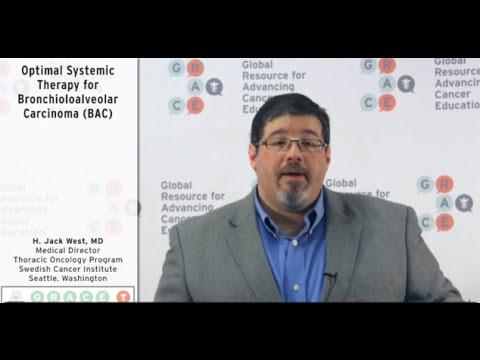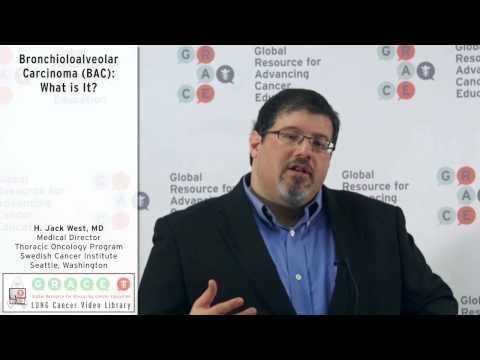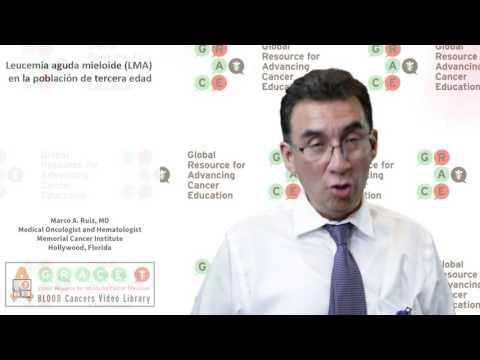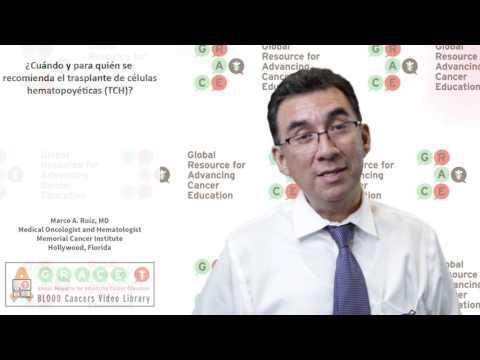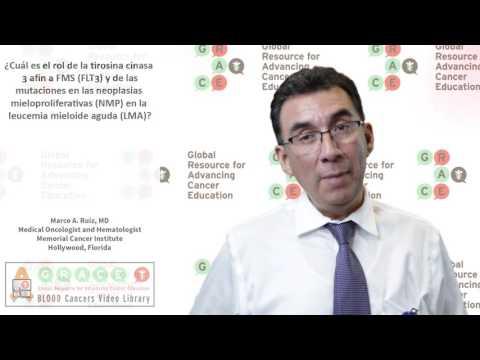Bronchioloalveolar carcinoma (BAC) is an unusual subtype of lung cancer; medical oncologist Dr. Jack West reviews the evidence on the best systemic therapy to treat advanced, multifocal BAC.
Video Library
Search the Video Library
Video Language
Filter by Cancer Type:
Displaying Results 1 - 6 of 6
Bronchioloalveolar carcinoma (BAC), also known as adenocarcinoma in situ, is an unusual subtype of lung cancer with its own appearance under a microscope and on imaging. Dr. Jack West introduces some of the basics of the unique features of BAC. Download PDF Transcript Transcript One of the unusual
Unfortunately, there is as much misinformation as good information about the unusual subtype of lung cancer known as bronchioloalveolar carcinoma (BAC) or adenocarcinoma in situ. Dr. Jack West reviews the top 5 myths. Download PDF Transcript Transcript One of the unusual subtypes of lung cancer is
GRACE sat down with Dr. Marco Ruiz to discuss information regarding acute myeloid leukemia (AML) in elderly patients (Leucemia aguda mieloide (LMA) en la población de tercera edad). Stay tuned for more on our continuing video series with our Spanish speaking faculty on updates in blood cancer
GRACE sat down with Dr. Marco Ruiz to discuss information regarding when and who to refer for hematopoietic cell transplantation (HCT) (¿Cuándo y para quién se recomienda el trasplante de células hematopoyéticas (TCH)?). Stay tuned for more on our continuing video series with our Spanish speaking
GRACE sat down with Dr. Marco Ruiz to discuss information regarding the role of fms related tyrosine kinase 3 (flt3) and myeloproliferative neoplasms (MPN) mutations in acute myeloid leukemia (AML) (¿Cuál es el rol de la tirosina cinasa 3 afín a FMS (FLT3) y de las mutaciones en las neoplasias

